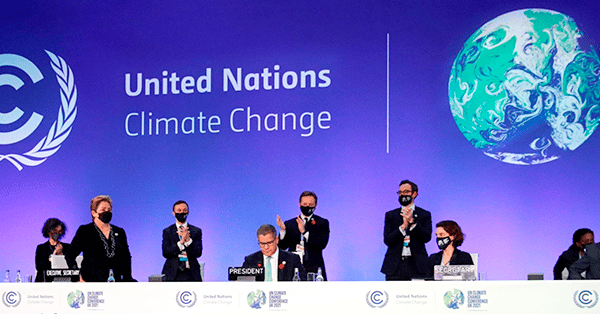
The COP 27 Presidency focused its efforts regarding the reduction of greenhouse gas emissions on trying to shape a work program with the declared purpose of “urgently scaling up mitigation ambition and implementation in this critical decade” in order to keep in force (and make) the 1.5°C target achievable.
Therefore, emphasis was placed on raising the stated ambition, but also the ambition in implementation, highlighting the mitigation and adaptation actions necessary for each instance of the socio-technical transitions that are being undertaken.
To this end, it is essential to provide a structure of incentives and economic signals aligned with the transition. In this sense, carbon pricing instruments and emissions trading mechanisms are a key element.
Article 6.2 defines ‘internationally traded mitigation outcomes’ (ITMOs), which countries can trade, buy or sell to each other in order to meet their targets under the Paris Agreement. Key decisions adopted at COP 27 include determining what information countries would need to report when trading ITMOs and whether such reporting could be kept confidential. The agreed text allows countries that choose to do so to keep that information secret; they need only to explain why they are doing so, which raises some concerns. Other important issues include the revocation of credits and the centralized accounting and reporting platform, which should be further developed in order to complete the rules of procedures in their entirety.
However, a number of other technical decisions relating to the mechanism have been deferred to COP 28, to be held in the United Arab Emirates.
Some observers agree that trade under Article 6 is unlikely to materialize before 2024, while it seems that voluntary carbon markets could take off in that period, given the voluntary carbon neutrality commitments made mainly in recent years by the private sector.
On this point, some experts suggest that this deferral is, in spite of everything, a good result. Interpretations of the Rule Book for Article 6, as finalized at COP26, are not always promising, nor are the interpretations of some governments on some of the more controversial issues in this area.
Both Article 6.4 and Article 6.8 exhibited contentious points during the negotiations in Egypt that will surely need to be resolved in the next period in order to ensure that the mechanisms can function effectively, to ensure the integrity of the procedures applied and to avoid greenwashing.
It can be assumed that the results will be sufficient to keep the implementation process on track during the year until the next conference in the United Arab Emirates, although perhaps at a rather slow pace and without too much momentum in terms of ambition.







 Stay updated on the latest trends of Green Finance
Stay updated on the latest trends of Green Finance


